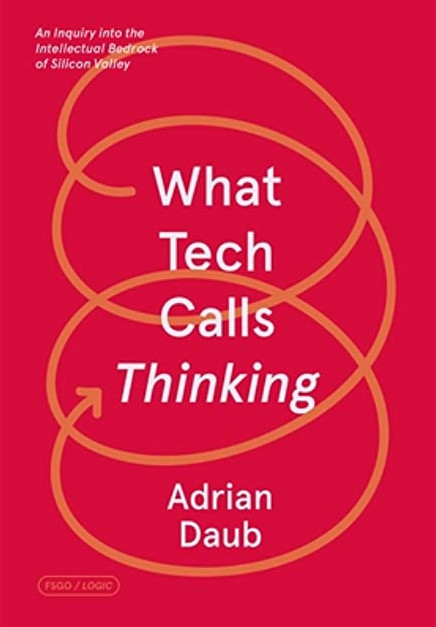
Researcher, teacher, and activist. Born at 324 BPM. Binary, so you don't have to be.
How to get URL link on X (Twitter) App


 @adriandaub 2/ And how does tech, that is Silicon Valley, think? Basically, like bumbling undergrads who grab trivialized versions of serious concepts, which they misinterpret to provide their privileged and parochial experiences with faux drama (dropping out! disruption!) and universalism.
@adriandaub 2/ And how does tech, that is Silicon Valley, think? Basically, like bumbling undergrads who grab trivialized versions of serious concepts, which they misinterpret to provide their privileged and parochial experiences with faux drama (dropping out! disruption!) and universalism.

 @xrw 2/ It’s a reflection on the transformation of social and natural life under digital capitalism, full of off-hand remarks such as: The “right to privacy is not an individualistic one of secrets and stories, but a social one that requires us to lead with trust in our daily lives.”
@xrw 2/ It’s a reflection on the transformation of social and natural life under digital capitalism, full of off-hand remarks such as: The “right to privacy is not an individualistic one of secrets and stories, but a social one that requires us to lead with trust in our daily lives.”

 @Viktor_MS durch die sie immer mehr Daten sammeln, so dass ihr Konkurrenzvorteil immer grösser wird und sie de-facto Monopolstatus erreichen. Europa kommt dabei immer mehr ins Hintertreffen, Innovation wird abgewürgt, eine neue Form des Kolonialmus entsteht. (2/5)
@Viktor_MS durch die sie immer mehr Daten sammeln, so dass ihr Konkurrenzvorteil immer grösser wird und sie de-facto Monopolstatus erreichen. Europa kommt dabei immer mehr ins Hintertreffen, Innovation wird abgewürgt, eine neue Form des Kolonialmus entsteht. (2/5)